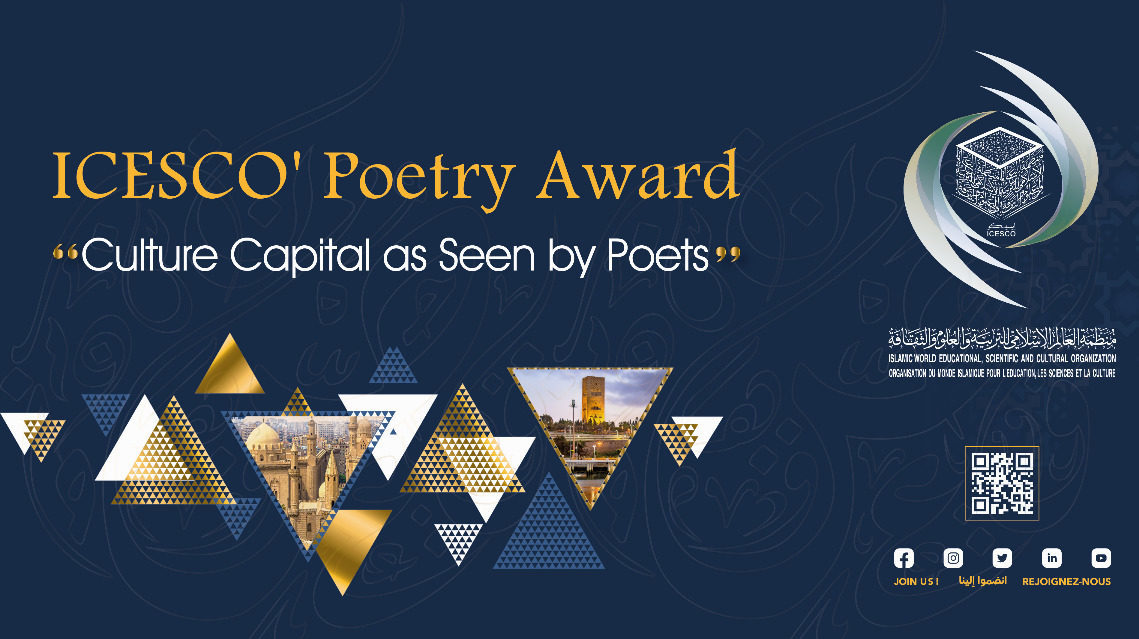
Rabat and Cairo in the Eyes of Poets: ICESCO announces winners of Culture Capital Prize

26 December 2022
The Islamic World Educational, Scientific and Cultural Organization (ICESCO) is pleased to announce the winners of its poetry prize, “Culture Capital in the Eyes of Poets,” which it launched as part of its Programme for Culture Capitals in the Islamic World, within the framework of its celebration of Rabat and Cairo as Culture Capitals in the Islamic World for 2022. Three poems were selected for each city, out of the total of 150 poems submitted.
The Organization had formed an international jury to process and evaluate all the submitted poems, following artistic quality, uniqueness and creativity criteria. The jury selected six poems that best fulfilled these criteria, three for the category of “Rabat, Capital of Lights,” while the other three were selected as part of the second category, “Cairo, City of the Thousand Minarets.” The winners will receive certificates of appreciation and monetary rewards, standing at USD 2,000, USD 1,500, and USD 1,000 respectively for the winner, runner-up, and second runner-up of each category.
In the category of, “Rabat, Capital of Lights,” the jury selected the poem, “A Harp of Lights,” by Poet Muhammad Majid Al-Khattab from Syria, as the winner; “Because You Are the Light,” by Poet Hassan Boufares from Morocco, as runner up, and “A Musical Tour in Rabat,” by Poet Mohammed Al-Habib Mohammed Hamed Younes from the Sudan, as the second runner up.
As for the category, “Cairo, City of a Thousand Minarets,” the jury selected the poem, “In the Presence of Cairo the Glorious,” by Poet Ahmad Abdou Ali Al-Jahmi from Yemen, as the winner; “Cairo,” by Poet Wafiq Jawdah Al-Sayed from Egypt, as runner up; and “Cairo, the Heart Charmer,” by Poet Mohamed Abdelkader Fadili from Algeria, as second runner-up.
The Prize, which was overseen by ICESCO Center for the Arabic Language for Non-Arabic Speakers, aims to promote the cultural, civilizational and historical heritage of both Rabat and Cairo; foster opportunities for cultural and knowledge exchange and openness to other civilizations; and encourage poetic creativity in describing Arab cities, written in Arabic.



